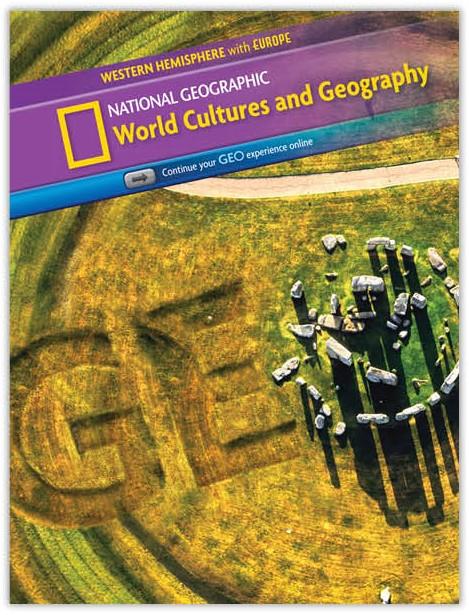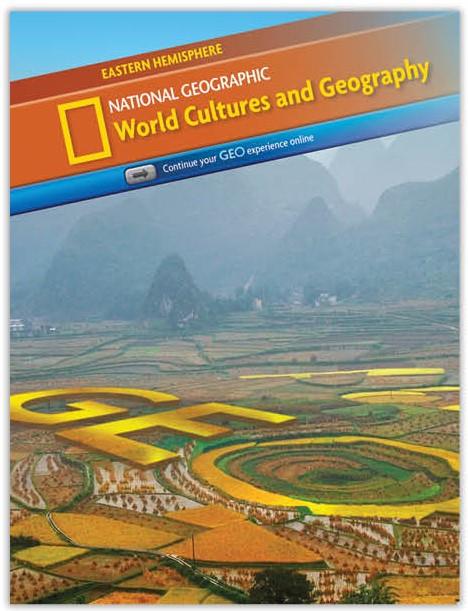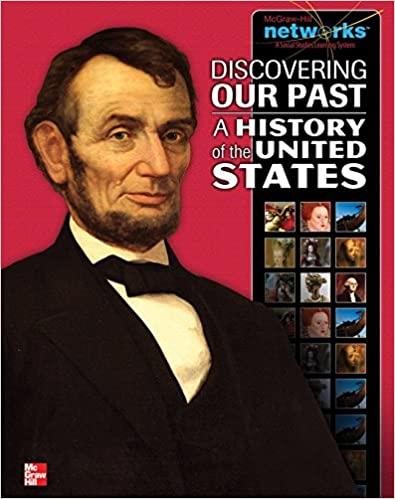Curriculum and Instruction
Page Navigation
- Home
- Curriculum
- Contact Information
- ESSER Information
- 2025 Summer Reading
- Assessments
- Instructional Coaches
- Diversity, Equity, Inclusion, & Belonging
- Interboro's District Wide Plans and Reports
-
School Guidance Plan
- Counselor Names and Ratios
- Counselor Roles
- Job Descriptions & Evaluations
- Mission Statement
- Program Calendar and Delivery Style
- K-12 Curriculum Scope and Sequence
- Annual K-12 Program Goals
- Academic & Career Plan and Portfolio Process
- Stakeholders
- Career and Post-Secondary Resources
- Career and Technical Strategies
- Interboro School District
- Curriculum
- Middle School
- 6-8 Social Studies
-
Grade Level: 6 - World Geography (Western Hemisphere)
6th grade Social Studies focuses on the areas of physical geography, history, government, culture, economics and current events of the western hemisphere. Students complete a wide variety of activities that include the use of interactive technology, maps, projects, discussions, current events, and investigative readings. Our goal is to raise awareness of a variety of cultures, and countries while becoming an informed citizen of a global community.
Main Themes/Units
Introduction to Geography - Geographic Thinking, Maps, Human Geography, Physical Geography
Europe - Physical Geography, Ancient Greece, Rome, Middle Ages, Renaissance and Emerging Europe
Caribbean and Central America - Physical Geography, Maya, Impacts of European exploration and colonization, independence movements and modern-day economic challenges
Mexico - Physical Geography, Aztec empire, Impacts of Spanish colonization, Independence movements and modern-day Mexico
South America - Physical Geography, Inca, Impacts of European exploration and colonization and Modern-day challenges in Brazil, Venezuela, Peru, Chile and ArgentinaPrimary Text(s)

National Geographic World Cultures and Geography
Copyright 2013 National Geographic Learning, Cengage Learning.Supplemental/Secondary Text(s)
National Geographic Global issues - Copyright 2014 National Geographic Learning, Cengage Learning.
Nystrom World Atlas - Copyright 2009, Nystrom World Atlas
The DBQ Project - Copyright 2013, The DBQ ProjectWebsites/Software Links
Junior Scholastic Magazine
Sheppard Software Maps
CNN10 Student NewsGrade Level: 7 - World Geography (Eastern Hemisphere)
7th grade social studies focuses on the areas of physical geography, history, government, culture, economics and current events of the Eastern hemisphere. Students complete a wide variety of activities that include the use of interactive technology, maps, projects, discussions, current events, and investigative readings. Our goal is to raise awareness of a variety of cultures and countries while becoming an informed citizen of a global community.
Main Themes/Units
Introduction to Geography - Geographic Thinking, Maps, Human Geography, Physical Geography.
Russia - Physical Geography, Natural Resources, Russian Czars, Communist Revolution, Lenin and Stalin and Modern Day Russia
Southwest Asia and North Africa - Physical Geography, Comparative study of the (3) monotheistic religions, Natural Resources and modern-day conflicts.
Sub-Saharan Africa - Physical Geography, Natural Resources, Ancient Kingdoms (Ghana and Songhai), Impacts of European colonization, Slave trade, Apartheid in South Africa, Economic challenges.
South Asia - Physical Geography, Natural Resources, Impacts of European colonization, Gandhi and Indian Independence, Population growth
East Asia - Physical Geography, Natural Resources, Impacts of European Colonization, Mao and the Communist revolution, Comparing North and South Korea, Economic Challenges, Population growth.
Primary Text(s)
National Geographic World Cultures and Geography
Copyright 2013 National Geographic Learning, Cengage Learning.
Supplemental/Secondary Text(s)National Geographic Global issues - Copyright 2014 National Geographic Learning, Cengage Learning.
Nystrom World Atlas - Copyright 2009, Nystrom World Atlas
The DBQ Project - Copyright 2013, The DBQ Project
Websites/Software Links
Junior Scholastic Magazine
Sheppard Software Maps
CNN10 Student NewsGrade Level: 7 - Financial Literacy
Financial Literacy Units 4-6: Credit, Saving and Investing
Credit
- Detailed information on the unit titled Credit can be found here that includes all objectives, standards, materials and assessments
- Borrowing Money
- Introduction to Credit
- Credit Cards
- Credit Scores
- Loans 101
Saving- Detailed information on the unit titled Saving can be found here includes all objectives, standards, materials and assessments
- Why is Saving Important?
- Building Your Savings Habit
- Savings vs Checking Accounts
- Opening a Savings Account
- The Power of Compound Interest
Investing- Detailed information on the unit titled Investing can be found here includes all objectives, standards, materials and assessments
- Why Invest?
- The Stock Market
- Stocks vs Bonds
- Diversification
- Start Investing
Grade Level: 8 - Civics
The 8th grade curriculum is a program designed to develop youth empowerment and produce informed, active citizens who will promote an equitable society. Within the framework of a democratic classroom, we will cover the early history of the United States. Students will be able to analyze the purpose of the constitution, the struggles of a new nation, westward expansion, division of the North/South and reconstruction. As a class, we will be completing a wide range of activities that include the use of interactive technology, current events, projects, speeches, primary sources, discussions, and investigative readings. The goal by the end of the year is to be an informed citizen about our country’s past and how it has shaped us today.
Main Themes/Units
Creating a Democratic Classroom
Foundations of Government
Examining Values and Community
The Spirit of Independence
The American Revolution
The Soapbox Speech Project
The Constitution
The Federalist Era
The Jefferson Era
Growth and Expansion
Manifest Destiny
North and South
Causes of the Civil War
Reconstruction EraPrimary Text(s)

Discovering our Past: A History of the United States- Copyright 2014, McGraw-Hill Education
Mikva: Issues to Action- Copyright 2019, Mikva Challenge Grant FoundationSupplemental/Secondary Text(s)
We the People: Citizens and the Constitution - Copyright 2017, Center for Civic Education
The DBQ Project - Copyright 2013, The DBQ ProjectWebsites/Software Links
Junior Scholastic Magazine
iCivics
CNN10 Student News - Detailed information on the unit titled Credit can be found here that includes all objectives, standards, materials and assessments

